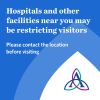Heart Disease in Children: When to Seek a Pediatric Cardiologist
- Understanding Heart Disease in Children
- Common Symptoms of Heart Disease in Children
- When to Seek a Pediatric Cardiologist
- The Role of a Pediatric Cardiologist
- Real-Life Case Study: Diagnosing Heart Disease in Children
Understanding Heart Disease in Children
Heart disease is often associated with adults, but it can also affect children, sometimes even from birth. Pediatric heart disease refers to a wide range of conditions that can affect a child’s heart. These conditions may be congenital (present at birth) or acquired later in life. While congenital heart defects are more common, conditions like arrhythmias and heart murmurs can also be identified during childhood. Understanding the nature of heart disease in children is crucial for parents to recognize the potential health risks early.
Common Symptoms of Heart Disease in Children
It’s important to be aware of the symptoms of heart disease in children, as they may not always be immediately obvious. Common signs include:
- Unexplained fatigue or weakness
- Frequent shortness of breath or rapid breathing
- Chest pain or discomfort, though rare in younger children
- Blue or pale skin, especially around the lips or fingertips
- Difficulty in gaining weight or poor feeding habits in infants
Parents should always trust their instincts. If a child exhibits these symptoms or shows any other concerning signs, it’s important to consult with a healthcare professional promptly.
When to Seek a Pediatric Cardiologist
Knowing when to seek a pediatric cardiologist is crucial for the early detection and management of heart disease in children. A pediatric cardiologist is a specialist trained in diagnosing and treating heart conditions in children. If a child experiences persistent or unexplained symptoms, or if there is a family history of heart disease, it is essential to seek a pediatric cardiologist's evaluation. Some specific scenarios where you should consider consulting a pediatric cardiologist include:
- Children with a known family history of heart disease
- If your child has been diagnosed with a heart murmur
- In cases where a child has difficulty with physical activities or experiences excessive fatigue
- If symptoms persist or worsen despite initial medical evaluations
Early consultation can help in diagnosing issues early, preventing complications, and starting treatment at the right time.
The Role of a Pediatric Cardiologist
A pediatric cardiologist’s primary role is to diagnose, treat, and manage heart conditions in children. They conduct various tests such as echocardiograms, electrocardiograms (EKG), and other imaging tests to assess the child’s heart function. Once a diagnosis is made, they work with parents and the child’s healthcare team to develop an appropriate treatment plan. This may include medication, lifestyle changes, or in some cases, surgical intervention. The pediatric cardiologist’s goal is to ensure the child can lead a healthy, active life despite any heart condition they may have.
Real-Life Case Study: Diagnosing Heart Disease in Children
A young boy named Ethan was often tired after short bursts of activity and would complain of chest discomfort. His parents noticed that he struggled to keep up with his peers during sports and often appeared winded. After a visit to a pediatrician, an ECG revealed an abnormal heart rhythm, leading to a referral to a pediatric cardiologist. Through further testing, it was determined that Ethan had a congenital heart defect that was not immediately evident at birth. With early intervention and ongoing care, Ethan’s condition was managed, and he was able to continue living a full, active life.
This story highlights the importance of seeking a pediatric cardiologist when symptoms of heart disease in children are present. With the right care, many heart conditions can be managed effectively, allowing children to grow and thrive.
Take Action: Protect Your Child’s Heart Health Today
Early intervention is key in preventing complications associated with heart disease in children. If you suspect your child may have heart issues or if they exhibit any of the symptoms mentioned, don’t hesitate to seek the expertise of a pediatric cardiologist. The sooner heart conditions are diagnosed, the better the chances for effective treatment and management. Contact your healthcare provider or a pediatric cardiologist today to ensure your child's heart health is in good hands.





















